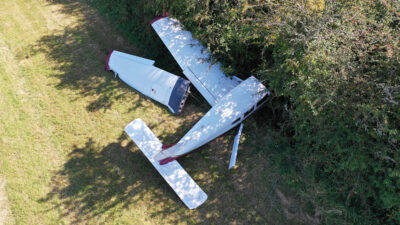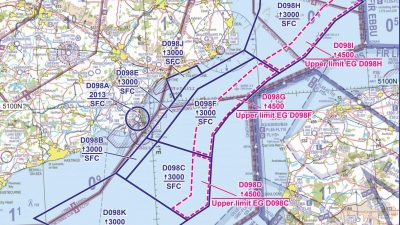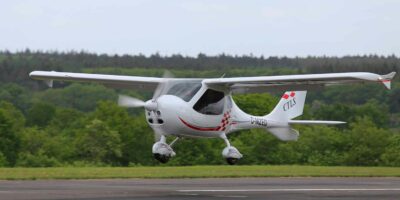The UK CAA has welcomed a proposal from the European Commission to allow the UK to continue issuing the Instrument Meteorological Conditions (IMC) rating for pilots until April 2019. According to the CAA, the move follows considerable effort by the CAA and UK GA to support the retention of the rating.
Since its introduction in the 1960s the IMC rating has been acquired by thousands of UK private pilots to help them plan and fly safely in instrument weather conditions. ‘National’ ratings, such as the IMC, were to be phased out by April 2014, but the proposal, which is expected to be included in the next amendment of the European Aircrew Regulation, will extend this deadline, allowing flying schools to continue offering IMC training and many more UK pilots to add the rating to their licences.
It had previously been agreed that pilots who already held the rating before April 2014 would be allowed to use it indefinitely within the UK and to transfer it to a new EASA Private Pilot’s Licence as an Instrument Rating (Restricted) and this agreement remains.
Praising the move, Andrew Haines, CAA Chief Executive, said, “The IMC rating has proven itself over the years to be a valuable safety tool for UK general aviation – training private pilots to cope with our very unpredictable weather systems. This is a sensible way forward which will aid flight safety in the UK. One of my first commitments to the GA community was that the CAA would argue strongly for the retention of the IMC rating and the privileges and safety benefits it brings. We will continue to make the case for the permanent preservation for the benefit of future generations of pilots.”
Jim Thorpe, Chairman of PPL/IR Europe, told FLYER, “It is undoubtedly the start of a new era for any PPL who wants to gain an instrument flying qualification. The IMCR has a reprieve in exactly the form PPL/IR Europe suggested might work some years ago. We have, thanks to the efforts of PPL/IR Europe working through Europe Air Sports an En Route Instrument Rating and a Competence Based route to the full IR. The holders of third country Instrument ratings now have a viable way of obtaining an EASA IR which recognises their experience and an extra 12 months grace before they need to comply.
This is a triumph for quiet persistence over five or six years. The work now goes on to ensure that pilots can take advantage of whichever instrument qualification suits their needs. We now need to be sure that there is an ATO structure that delivers the best possible training with a minimum of costly administrative burdens. The CAA is to be congratulated on their efforts so far. Their persistence in the support of the IMCR in particular deserves great credit.”
He added, “There are a number of hopefully uncontroversial clarifications they now need to make to fully understand how it will be delivered in the context of the new EASA ATOs. Training organisations need to gear up in order to offer the EIR and the CBM IR. The examiners need to prepare for the demand for tests associated with the conversion of FAA instrument ratings and then to deal with the increasing number of PPL s who will be acquiring instrument qualifications of all kinds. I am sure that in the coming months everyone can look to Flyer Magazine for informative articles on how all this might work in practice. You will also find news and views on the PPL IR Europe website <a href=’http://www.pplir.org’ target=’_blank’>www.pplir.org</a>”
More information on pilot licensing is available at <a href=’http://www.caa.co.uk/default.aspx?catid=175′ target=’_blank’>www.caa.co.uk/default.aspx?catid=175</a>












